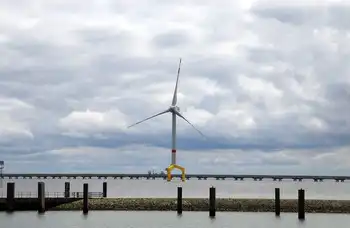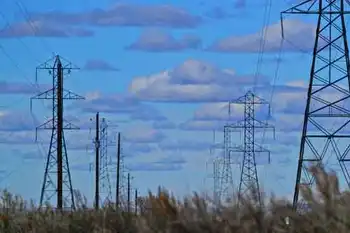Ottawa tells coal generators to power down
By Globe and Mail
Electrical Testing & Commissioning of Power Systems
Our customized live online or in‑person group training can be delivered to your staff at your location.

- Live Online
- 12 hours Instructor-led
- Group Training Available
As the U.S. Senate struggles to deal with climate legislation, Mr. Prentice met with power company chief executives in Ottawa and made it clear the government intends to highlight Canadas relative advantage in clean electricity compared to U.S. reliance on coal.
Under Ottawas proposal, power companies would have to close their coalfired facilities as they reach the end of their commercial life, largely over the next 10 to 15 years. The companies would not be allowed to refurbish the plants to extend their usefulness or replace them with new coal units, unless they include technology to capture the carbon dioxide and sequester it underground.
The government has announced a target to increase Canadas reliance on nonemitting sources of power to 90 per cent by 2020, from the current level of 75 per cent.
But the environment minister is quietly shifting that goal to low emitting sources, which would include natural gas as well as nuclear, hydroelectric and renewables such as wind and solar. Natural gas power plants emit roughly half the carbon dioxide as coalburning ones, and the fuel is expected to be abundant for the next several decades as the industry develops massive shale gas deposits.
Mr. Prentice also assured the executives that the government intends to set flexible rules that would not force them to close down the plants at an arbitrary date, sources said. The government believes most of Canadas 21 coalburning power plants would reach the end of their commercial life between 2015 and 2025, though industry officials say companies would find ways to keep them running longer if they are prevented from investing in more costefficient overhauls or new coal plants. The government plans to move fairly quickly because power companies are already starting to plan how they will meet electricity demand later this decade.
The power industry has been concerned about Mr. Prentices 2020 emission target, arguing that the prohibition on refurbishments could hurt shareholder value and drive up costs to energy consumers. It was unclear how some provinces would fill the gap, particularly Alberta and Saskatchewan, which rely on coal for more than half their power supply.
Among the companies attending the meeting were executives from TransAlta Corp., Capital Power Corp, SaskPower, Ontario Power Generation, New Brunswick Power and Nova Scotia Power. Ontario has already committed to closing its coalfired plants by 2014, but Alberta and Saskatchewan would find it more difficult to replace their power production due to their dependence on coalfired plants.
Ottawa plans to regulate greenhouse gas emissions in lockstep with the U.S. because of the integrated nature of the two economies.
But Mr. Prentice has said the electricity sectors are vastly different and that, therefore, Canada can move unilaterally to showcase Canadians leadership in clean power, a strategy aimed in part at deflecting the strident criticism targeting the rapidly growing emissions in the expanding oil sands sector.
Canada has 21 operating coal plants with Ontario planning to close its four by 2014 while the U.S. has some 650 coalburning plants that provide more than half the countrys electricity.
A nonpartisan group of senators led by Democrat John Kerry and Republican Lindsay Graham had been expected to introduce longanticipated legislation to meet the U.S. commitment to reduce emissions by 17 per cent from 2005 levels by 2020. But intraparty wrangling has threatened to delay the bill.
Despite the delays in the U.S., power producers believe the government will move far more quickly to impose new rules on them, though Mr. Prentice has not indicated a timeline.
Don Wharton, TransAltas vicepresident of sustainable development, said the companies would prefer a regulatory approach that set clear and achievable emissionreduction standards for them individually, rather than a vague industrywide approach aimed at a nonemitting goal.
We struggle to understand what the goal 90 per cent nonemitting, what problems does that actually get at, Mr. Wharton said. It is a very prescription goal whose endpoint isnt clear to us.
Publicly traded TransAlta recently shut down a coalfired plant at Wabamun, Alta., but is partnering with Edmontonbased Capital Power on the new 450megawatt Keephills 3 unit. The two Alberta companies have also received federal and provincial funding to construct a carboncapture pilot project at the site.
In Saskatchewan, three coalfired stations account for more than 55 per cent of the provinces power generation, and SaskPower has refurbished them all over the past 15 years.
There are no plans to decommission any of our coal fired plants before 2020, said SaskPower spokesman James Parker.
Rick Smith, president of Environmental Defence, said the governments efforts to reduce emissions in the power sector which account for 17 per cent of emissions will be overwhelmed by growing CO2 emissions as oil companies boost production from the oil sands.











